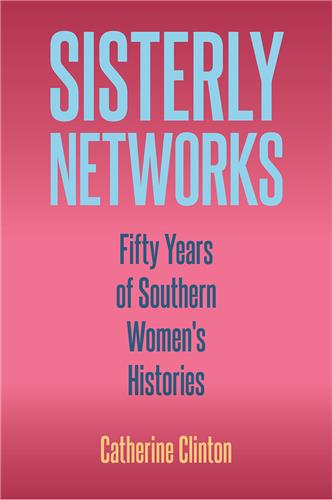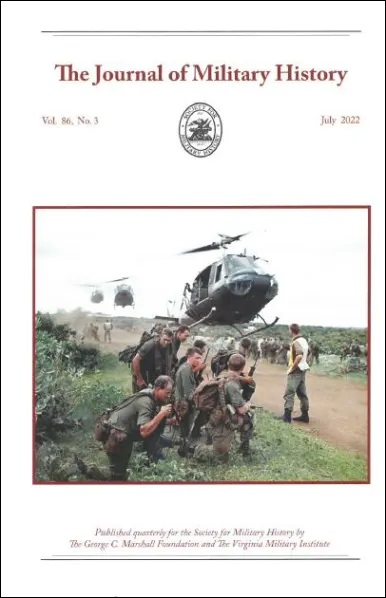Recent Publications & Awards
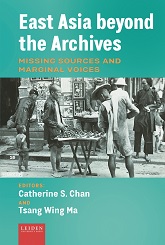 Dr. Wing Chung Ng, professor, recently published an essay, "Uncommon sources on an uncommon life: Cantonese opera music master Wong Toa (1914-2015)," in the edited volume, East Asia beyond the Archives (Amsterdam University Press, 2023).
Dr. Wing Chung Ng, professor, recently published an essay, "Uncommon sources on an uncommon life: Cantonese opera music master Wong Toa (1914-2015)," in the edited volume, East Asia beyond the Archives (Amsterdam University Press, 2023).
Abstract: "This chapter explores sources on the centennial biography of Cantonese opera master musician Wong Toa (1914-2015) whose life and career of unrivaled longevity bears witness to a sweeping panoramic history of traditional opera, folk music, transnational mobility, and cultural identity. These untapped sources include informative commemorative publications issued by Chinatown associations, invaluable compendia of longstanding Cantonese opera musical scores, self-published anecdotal accounts of an amateur chronicler, and detailed documentation in museum archives, all of which were created by or through Wong Toa. In addition, documents from his personal papers, made available recently by his family, furnish riveting, hitherto unknown, details on his life’s complicated turns and shed light on his shifting historical consciousness and identity formation."
You can learn more at the publisher's website. Congrats to Dr. Ng!
--------------------
 Dr. Ali Atabey, assistant professor, recently published "Ransom Intermediaries and the Redemption of Ottoman Captives in the Early Modern Mediterranean: A Sociolegal View from Seventeenth-Century Galata" in the Journal of the Ottoman and Turkish Studies Association (2022).
Dr. Ali Atabey, assistant professor, recently published "Ransom Intermediaries and the Redemption of Ottoman Captives in the Early Modern Mediterranean: A Sociolegal View from Seventeenth-Century Galata" in the Journal of the Ottoman and Turkish Studies Association (2022).
Abstract: This article examines the networks formed by ransom intermediaries in Galata and Istanbul during the second half of the seventeenth century. Through a close reading of legal records from the court of Galata, it evaluates the formation, organization, and functioning of these ransoming networks and analyzes the relevance of their local foundations to the redemption of Ottoman captives in the Mediterranean. In the face of increasing piracy and corsair activities, thousands of Ottoman subjects traversing the Mediterranean were captured during this period. Since the direct intervention of the state was usually reserved for elite captives, many Ottoman captives had to be ransomed by other means. As the main commercial and diplomatic district of Istanbul and its doorway to the Mediterranean, Galata became a solution zone for the emancipation of these captives, whose relatives and friends appealed to the ransoming services of intermediaries in the district, most of whom were European. This article suggests that the local organization and functioning of ransoming networks on Ottoman soil were as important for the successful ransoming of captives as the connections maintained by intermediaries throughout the broader Mediterranean. As such, these local networks assisted non-state actors as they negotiated freedom and captivity.
You can learn more at the journal's website. Congratulations to Dr. Atabey!
--------------------
Dr. Catherine Clinton, professor, has recently published an edited volume, Sisterly Networks: Fifty Years of Southern Women's Histories, in the Frontiers of the American South series, University Press of Florida (2020).
Abstract: Tracing the development of the field of southern women’s history over the past half century, Sisterly Networks shows how pioneering feminists laid the foundation for a strong community of sister scholars and delves into the work of an organization central to this movement, the Southern Association for Women Historians (SAWH). Launched in 1970, the SAWH provided programming, mentoring, fundraising, and outreach efforts to support women historians working to challenge the academic establishment. In this book, leading scholars reflect on their own careers in southern history and their experiences as women historians amid this pathbreaking expansion and revitalization of the field. Their stories demonstrate how women created new archival collections, expanded historical categories to include gender and sexuality, reimagined the roles and significance of historical women, wrote pioneering monographs, and mentored future generations of African American women and other minorities who entered the academy and contributed to public discourse.
You can learn more at the publisher's website. Congratulations to Dr. Clinton!
--------------------
Dr. Brian Davies, Professor, recently published “The Russian Baltic Fleet in the Seven Years’ War” in the Journal of Military History, vol. 86, no. 3 (July 2022): 557-572.
Abstract: The Russian Imperial Baltic Fleet founded by Peter I (the Great) of Russia suffered serious neglect after his death, and Russian grand strategy had to be revised to avoid deploying it in naval combat. During the Seven Years' War, the fleet played a minor, supporting role in coastal cruising and landing troops; its most significant accomplishment was supporting the siege of Kolberg. Upon her accession in 1762, Empress Catherine II (the Great) embraced administrative and training reforms that significantly improved the fleet's operational effectiveness, which was first demonstrated in the Aegean Expedition of 1769–1774.
You can learn more at the journal's website. Congratulations to Dr. Davies!
--------------------
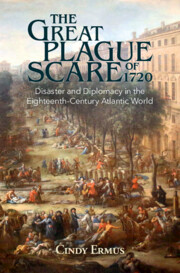 Dr. Cindy Ermus, assistant professor, recently published The Great Plague Scare of 1720: Disasters and Diplomacy in the Eighteenth-Century Atlantic World with Cambridge University Press (2023).
Dr. Cindy Ermus, assistant professor, recently published The Great Plague Scare of 1720: Disasters and Diplomacy in the Eighteenth-Century Atlantic World with Cambridge University Press (2023).
Abstract: From 1720 to 1722, the French region of Provence and surrounding areas experienced one of the last major epidemics of plague to strike Western Europe. The Plague of Provence was a major disaster that left in its wake as many as 126,000 deaths, as well as new understandings about the nature of contagion and the best ways to manage its threat. In this transnational study, Cindy Ermus focuses on the social, commercial, and diplomatic impact of the epidemic beyond French borders, examining reactions to this public health crisis from Italy to Great Britain to Spain and the overseas colonies. She reveals how a crisis in one part of the globe can transcend geographic boundaries and influence society, politics, and public health policy in regions far from the epicentre of disaster.
You can learn more at the publisher's website. Congratulations to Dr. Ermus!
--------------------
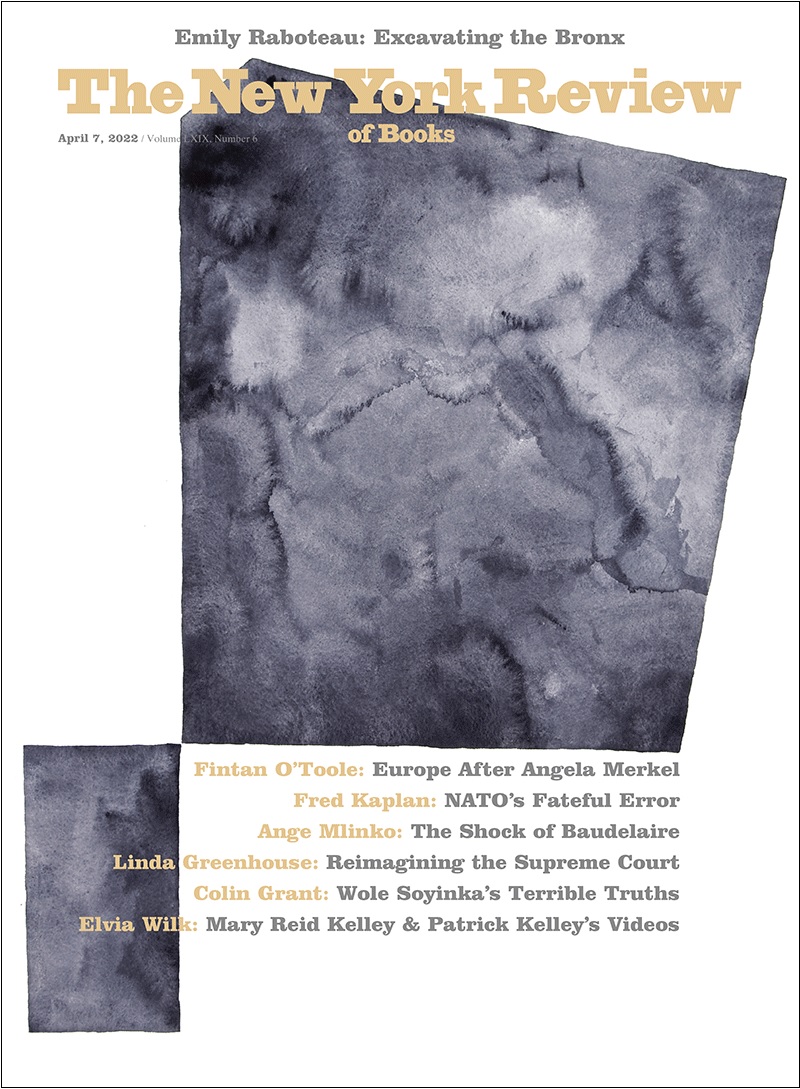 Dr. Jorge Felipe-Gonzalez, assistant professor, recently published “The Constitution and the Slave Trade” in the New York Review of Books (vol. 49, no. 6 (2022): 53-54), with coauthors Henry Louis Gates Jr. and David Eltis.
Dr. Jorge Felipe-Gonzalez, assistant professor, recently published “The Constitution and the Slave Trade” in the New York Review of Books (vol. 49, no. 6 (2022): 53-54), with coauthors Henry Louis Gates Jr. and David Eltis.
Abstract: Jorge Felipe-Gonzalez, Henry Louis Gates, Jr., and David Eltis have coauthored a letter to the editor of the New York Review of Books, responding to Sean Wilentz’s recent article, “The Paradox of the American Revolution," which had appeared in a recent issue. The coauthors take issue with Wilentz's rather cavalier use of data, and they emphasize the importance of using reliable and verified data when discussing the history and consequences of the transatlantic slave trade.
You can read the letter in its entirety at the journal’s website. Congratulations to Dr. Felipe-Gonzalez!
--------------------
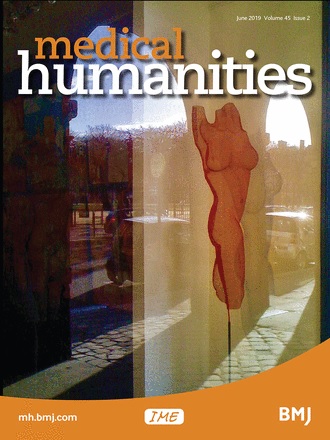 Dr. Kirsten Gardner, associate professor, recently published “‘The Art of Insulin Treatment’: Diabetes, Insulin, and the 1920s” in the Journal of Medical Humanities, vol. 20 (2019): 171-180.
Dr. Kirsten Gardner, associate professor, recently published “‘The Art of Insulin Treatment’: Diabetes, Insulin, and the 1920s” in the Journal of Medical Humanities, vol. 20 (2019): 171-180.
Abstract: Soon after the discovery of insulin in the early 1920s, the popular press celebrated the miraculous discovery. Although insulin had no curative effect on the chronic state of diabetes, it was frequently heralded as a “cure.” This paper examines how the discovery of insulin intersected with the rise of diabetic technology and the transfer of medical technology to the home setting. By analyzing diabetic manuals written for patients and physicians, letters exchanged between patient and physician, medical journals, magazines and newspapers, I trace how patients learned about insulin and more significantly how patients adopted measurement technologies designed to allow better home administration of insulin. This included acquiring knowledge about nutritional content and scales, maintaining sterile glass syringes, sharpening needles, using chemistry to measure sugar in the urine, and recording various measurements into meaningful text for patient-physician dialogue. As diabetes was re-imagined as a chronic and controllable illness, patients and physicians alike grappled with the promises and limitations of new medical technologies. This historical perspective offers a lens for better understanding the process of implementing diabetic treatment plans that required home testing, measurement, and recording of medical data. Such processes centered the importance of patient-centered work and the value of diabetic technologies. Much of this discourse is outlined in diabetic manuals of the 1920s.
You can learn more at the journal’s website. Congratulations to Dr. Gardner!
--------------------
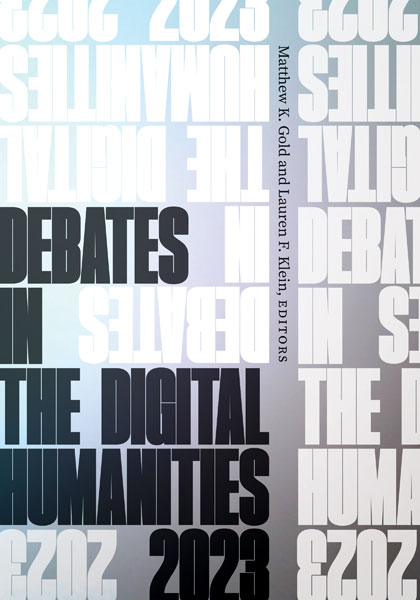 Dr. Abraham Gibson, assistant professor, recently contributed a chapter to the edited volume, Debates in the Digital Humanities 2023 (University of Minnesota Press, 2023).
Dr. Abraham Gibson, assistant professor, recently contributed a chapter to the edited volume, Debates in the Digital Humanities 2023 (University of Minnesota Press, 2023).
Abstract: In general usage, the word “deepfake” refers to any video that has been altered using machine-learning algorithms to produce hyper-realistic videos that show actual people saying and doing things they never said or did. This chapter examines the rise of deepfakes and their potential impact on both the historical record and the historical profession. How can historians properly vouchsafe the integrity of the historical record when deepfakes and other AI-generated synthetic media dramatically outnumbers the genuine article? Citing recent scholarship in the digital humanities as a guide, this chapter suggests ways that scholars can engage, and effectively mitigate, the deepfake challenge.
You can learn more at the publisher's website. Congratulations to Dr. Gibson!
--------------------
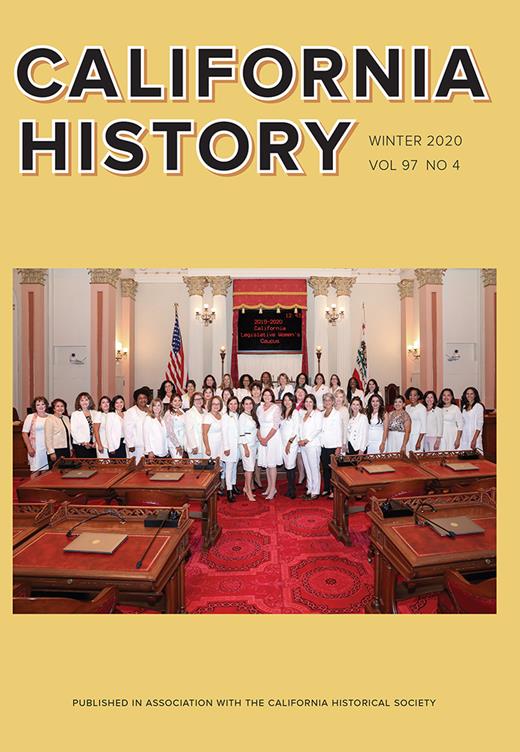 Dr. Gabriela Gonzalez, associate professor, recently published "Early Identity, Environment, and Experience: The Organizational Leadership of Josefina Fierro in the 1930s and 1940s" in the journal California History, vol. 97, no. 4 (2020).
Dr. Gabriela Gonzalez, associate professor, recently published "Early Identity, Environment, and Experience: The Organizational Leadership of Josefina Fierro in the 1930s and 1940s" in the journal California History, vol. 97, no. 4 (2020).
Abstract: Josefina Fierro de Bright served as a political and social activist in the 1930s and 1940s through her participation in the Mexican Defense Committee, El Congreso (the National Congress of Spanish-Speaking Peoples), and the Sleepy Lagoon Defense Committee, as well as her important efforts to end the violent attacks on ethnic Mexicans in Los Angeles during the Zoot Suit Riots. Fierro participated in organizations focused on human, civil, women’s, and labor rights. She contributed to a cross-cultural “politics of opposition” determined to create a world where true equality might flourish. She used American nationalist and transnationalist approaches. In the United States, Fierro networked with activists, celebrities, and political leaders who supported many of the same causes that she did. Her transnational approach materialized in the form of collaboration with the Mexican consulate, which also sought to secure the human rights of ethnic Mexicans living in the United States during a time of strong anti-Mexican sentiment. In order to understand why and how Fierro emerged as a leader willing to challenge the racism undergirding the segregation and mistreatment of ethnic Mexicans in California in the 1930s and 1940s, this study examines her family’s history of social activism, the fluid sociocultural environment of an American Left in which women played central roles, and her bold and charismatic leadership style.
You can learn more at the journal's website. Congratulations to Dr. Gonzalez!
--------------------
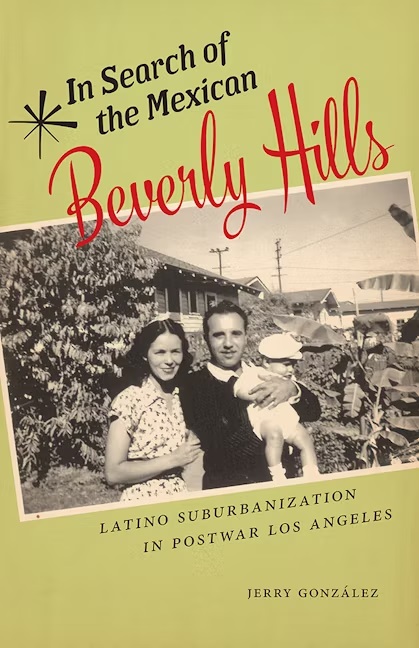 Dr. Jerry Gonzalez , associate professor, recently published In Search of the Mexican Beverly Hills: Latino Suburbanization in Postwar Los Angeles with Rutgers University Press (2018).
Dr. Jerry Gonzalez , associate professor, recently published In Search of the Mexican Beverly Hills: Latino Suburbanization in Postwar Los Angeles with Rutgers University Press (2018).
Abstract: Residential and industrial sprawl changed more than the political landscape of postwar Los Angeles. It expanded the employment and living opportunities for millions of Angelinos into new suburbs. In Search of the Mexican Beverly Hills examines the struggle for inclusion into this exclusive world—a multilayered process by which Mexican Americans moved out of the barrios and emerged as a majority population in the San Gabriel Valley—and the impact that movement had on collective racial and class identity. Contrary to the assimilation processes experienced by most Euro-Americans, Mexican Americans did not graduate to whiteness on the basis of their suburban residence. Rather, In Search of the Mexican Beverly Hills illuminates how Mexican American racial and class identity were both reinforced by and took on added metropolitan and transnational dimensions in the city during the second half of the twentieth century.
You can learn more at the publisher's website. Congratulations to Dr. Gonzalez!
--------------------
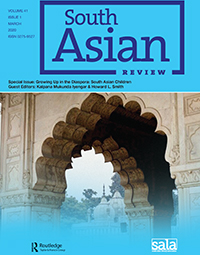 Dr. Anne Hardgrove , associate professor, recently published "Only Connect: Student Writing on Experiencing South Asia in San Antonio" in South Asian Review, vol. 41, no. 1 (2020): 50-68.
Dr. Anne Hardgrove , associate professor, recently published "Only Connect: Student Writing on Experiencing South Asia in San Antonio" in South Asian Review, vol. 41, no. 1 (2020): 50-68.
Abstract: This article examines pedagogical expectations and learning outcomes for an active learning and writing assignment given to University of Texas San Antonio history students studying the region of South Asia, defined as India, Pakistan, Bangladesh, Sri Lanka, Afghanistan, and Nepal. In order to enhance student learning, I ask students to experience some aspect of South Asian culture that they encounter, and draw connections between their experience and material discussed in class. Despite living in the hybrid “Tex-Mex” culture of the U.S.-Mexico border, and a region with a strong military presence with overseas experiences, the majority of students find that venturing into South Asian cuisine, conversations with people of South Asian heritage, films, visits to religious institutions asks them to leave their comfort zone. Even so-called “heritage” students, with personal and family connections to the Indian subcontinent, find that their own life experiences are confined to a particular religious or national tradition, and find that they too can be stretched by new cultural contexts. In the social sciences, particularly the field of communications, the term “intercultural competency” is often used to convey the skills of self-awareness and communication savvy gained by such exercises. People who can learn to engage other cultures easily, have an advantage in navigating a globalized world. By utilizing this engaged, informed sense of relationship-building and cultural appreciation to the humanities, particularly in the field of history, I hope to enrich students’ learning of historical events and traditions, while at the same time giving them opportunities to build confidence and broader worldviews.
You can learn more at the journal's website. Congratulations to Dr. Hardgrove!
--------------------
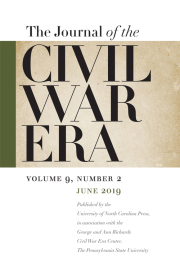 Dr. Patrick Kelly, associate professor, recently published "The Lost Continent of Abraham Lincoln" in The Journal of the Civil War Era, vol. 9, no. 2 (2019): 223-248.
Dr. Patrick Kelly, associate professor, recently published "The Lost Continent of Abraham Lincoln" in The Journal of the Civil War Era, vol. 9, no. 2 (2019): 223-248.
Abstract: During the U.S. Civil War, a brief period of ideological solidarity developed among the United States and the republics of Spanish America. The word "continent" was widely deployed in the geopolitical vernacular of both the United States and Spanish America to signify the revived fraternity among hemispheric republics. An important example is the first line of Abraham Lincoln's Gettysburg Address, "Four score and seven years ago our fathers brought forth, upon this continent, a new nation, conceived in liberty, and dedicated to the proposition that "all men are created equal." This essay discusses the context in which Lincoln deployed the word "continent" in his immortal speech to acknowledge that the crisis of the 1860s reached beyond the boundaries of the United States to encompass its neighboring republics in the New World.
--------------------
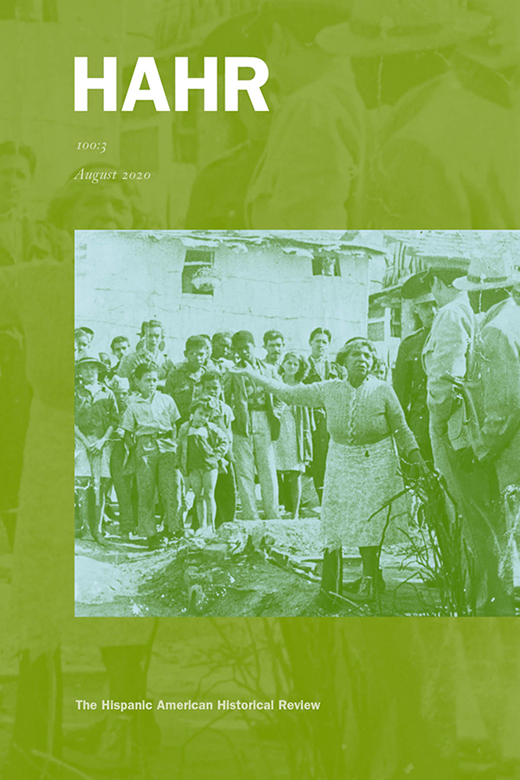 Dr. Catherine Komisurak, associate professor, recently published "Through the Gate of the Media Luna: Slavery and the Geographies of Legal Status in Colonial Cartagena de Indias" in the Hispanic American Historical Review, vol. 100, no. 3 (2020).
Dr. Catherine Komisurak, associate professor, recently published "Through the Gate of the Media Luna: Slavery and the Geographies of Legal Status in Colonial Cartagena de Indias" in the Hispanic American Historical Review, vol. 100, no. 3 (2020).
Abstract: The census records of some Indian towns (pueblos de indios) in colonial Chiapas and Guatemala present a puzzle: remarkably uneven gender ratios. This article explores gendered migration as a possible explanation. Previous studies show that the labor markets of colonial Latin American cities attracted mainly female migrants, and this article hypothesizes that people were more likely to migrate if they could make the trip between dawn and dusk. I use Google Maps, as well as colonial writings, to estimate travel times between a sample of Indian pueblos and their closest colonial cities. I then analyze gender ratios in census records from those pueblos. The results suggest that Indian pueblos with large male majorities were generally within a day's walk of a colonial city. Presumably, the male majorities indicate high rates of female out-migration for work in the cities. The article's conclusion discusses impacts that gendered out-migration likely had on sending communities.
You can learn more at the journal's website. Congratulations to Dr. Komisurak!
--------------------
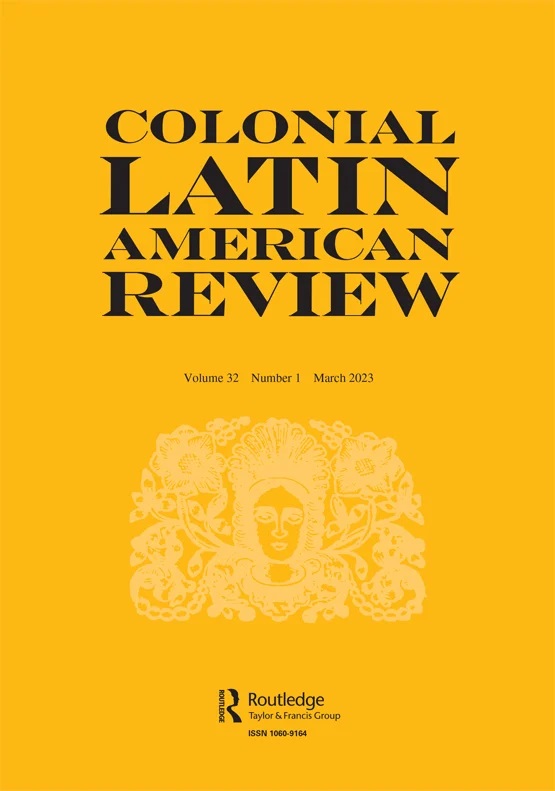 Dr. Andrew Konove , associate professor, recently published “In Search of a Decent Coin: the Value of Small Change in Bourbon Spanish America" in Colonial Latin American Review, vol. 30, no. 4 (2021): 589-610.
Dr. Andrew Konove , associate professor, recently published “In Search of a Decent Coin: the Value of Small Change in Bourbon Spanish America" in Colonial Latin American Review, vol. 30, no. 4 (2021): 589-610.
Abstract: This article examines three eighteenth-century projects to replace shopkeeper tokens in Spanish America with copper coins minted in Spain. The proyectistas (projectors) argued that copper coins would promote commerce, alleviate poverty, and restore the king's monopoly on minting in his American possessions. They encountered opposition, however, from local officials and colonial elites and gained little traction before the outbreak of the wars for independence in the early nineteenth century. In tracing these projects and the responses they generated, this article argues that Spain's American subjects held diverse understandings of money and value and that their divergent views highlight the uneven bonds of trust that linked Spanish Americans to the Crown and to one another in the late-colonial era.
You can learn more at the journal's website. Congratulations to Dr. Konove!
--------------------
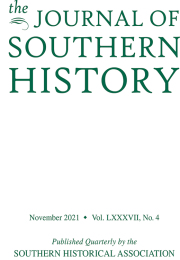 Dr. Gregg Michel, associate professor recently published "Surveilling the Memphis Movement: Police Spying in Memphis, 1968-1976" in the Journal of Southern History, vol. 87, no. 4 (2021).
Dr. Gregg Michel, associate professor recently published "Surveilling the Memphis Movement: Police Spying in Memphis, 1968-1976" in the Journal of Southern History, vol. 87, no. 4 (2021).
Abstract: This essay focuses on the Memphis Police Department's counterintelligence unit's work to undermine and oppress leftist activists in the city in the 1960s and 1970s. The Memphis police had a long history of spying on activist networks and using the vast powers at its disposal to intimidate and abuse dissidents. Memphis’s black civil rights activists took the brunt of this harassment. But as social unrest intensified in Memphis in the late 1960s surrounding the war in Vietnam, the demands of organized labor, and the radicalization of the civil rights movement after Martin Luther King’s assassination in the city, white student dissenters also emerged as a target for surveillance by the police, which by then had formed a special domestic intelligence unit—a Red Squad. The police, backed by the city’s political leadership, moved to crack down on activists at Memphis State University, local high schools, and wherever else activism sprouted. Although the police operation eventually was shut down in the wake of its exposure, its existence for more than a decade indicated the extent of the effort.
You can learn more at the journal's website. Congratulations to Dr. Michel!
--------------------
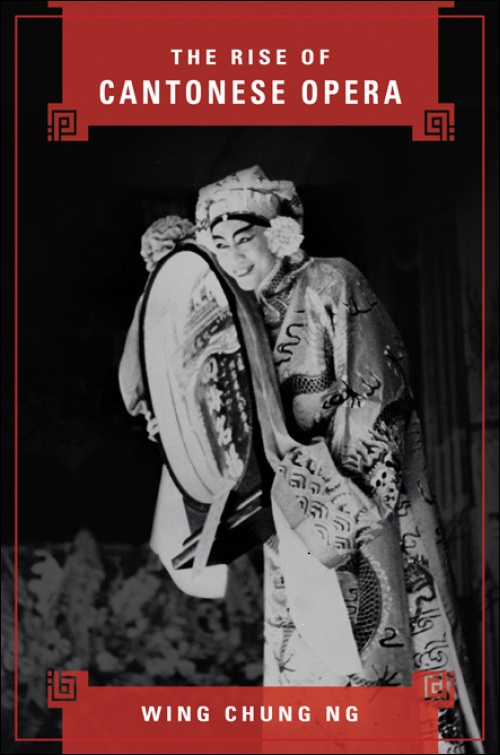 Dr. Wing Chung Ng, professor and chair, recently published a Chinese translation of his most recent book, The Rise of Cantonese Opera, with Chung Hwa Book (2019).
Dr. Wing Chung Ng, professor and chair, recently published a Chinese translation of his most recent book, The Rise of Cantonese Opera, with Chung Hwa Book (2019).
Abstract: Defined by its distinct performance style, stage practices, and regional- and dialect-based identities, Cantonese opera originated as a traditional art form performed by itinerant companies in temple courtyards and rural market fairs. In the early 1900s, however, Cantonese opera began to capture mass audiences in the commercial theaters of Hong Kong and Guangzhou--and changed forever. Wing Chung Ng charts Cantonese opera's confrontations with state power, nationalist discourses, and its challenge to the ascendancy of Peking opera as the country's preeminent "national theatre." Mining vivid oral histories and heretofore untapped archival sources, Ng relates how Cantonese opera evolved from a fundamentally rural tradition into a form of urbanized entertainment distinguished by a reliance on capitalization and celebrity performers. He also expands his analysis to the transnational level, showing how massive waves of Chinese emigration to Southeast Asia and North America further re-shaped Cantonese opera into a vibrant part of the ethnic Chinese social life and cultural landscape in the many corners of a sprawling diaspora. An engaging examination of a global phenomenon, The Rise of Cantonese Opera rewrites the political, artistic, and economic history of an art form and an industry.
To learn more, visit the publisher’s website. Congratulations to Dr. Ng!
--------------------
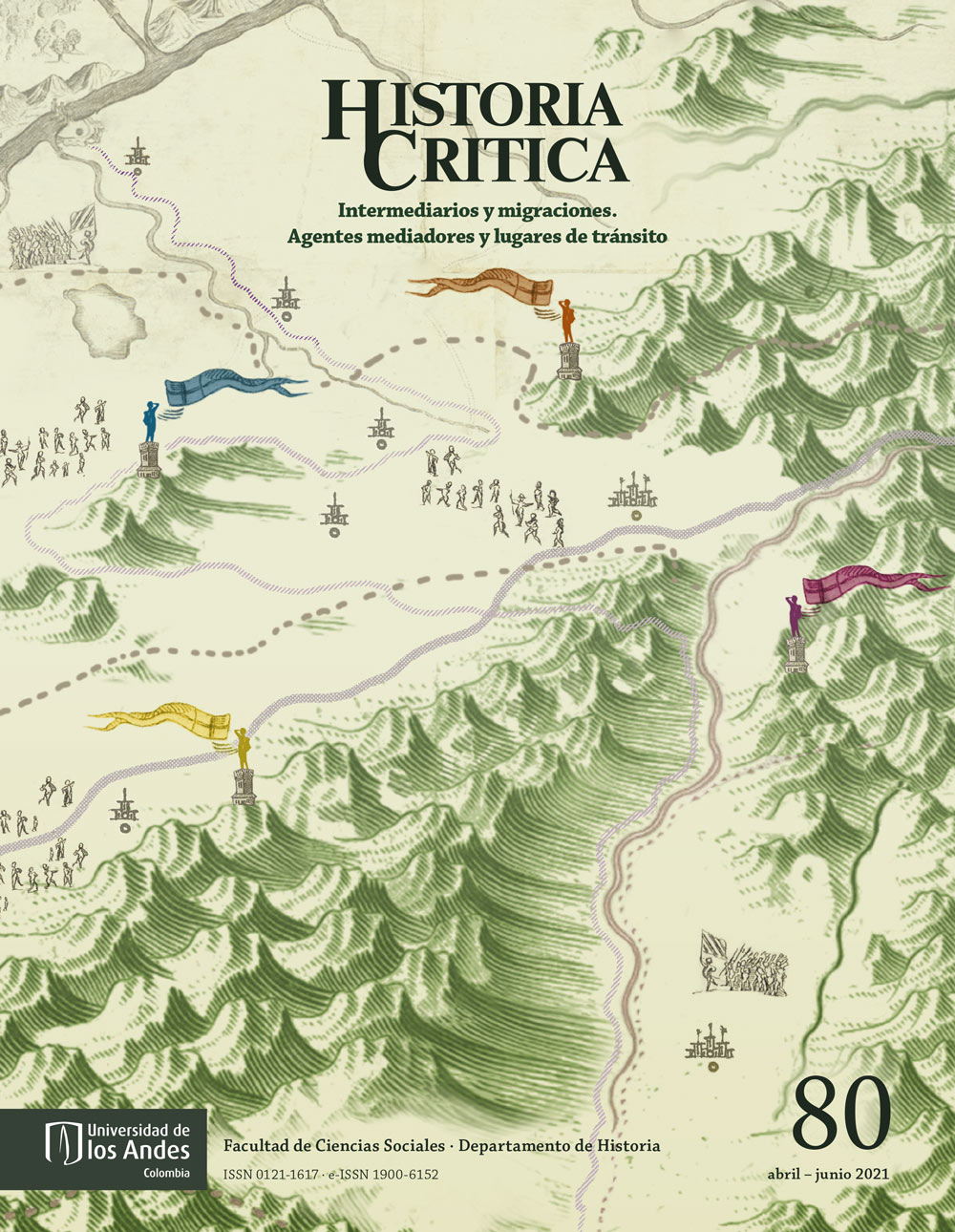 Dr. Catherine Nolan-Ferrell, “Pedimos Posada: Local Mediators and Guatemalan Refugees in Mexico, 1978-1984,” Historia Critica , Issue 80, April 2021, pp. 153-178.
Dr. Catherine Nolan-Ferrell, “Pedimos Posada: Local Mediators and Guatemalan Refugees in Mexico, 1978-1984,” Historia Critica , Issue 80, April 2021, pp. 153-178.
Abstract: This article investigates how indigenous Guatemalan campesinos who took refuge in Chiapas, Mexico, relied upon Mexican mediators and community solidarity to secure their safety during the Guatemalan army’s genocidal campaign (1979-1983) against Mayan campesinos. The objective is to identify why different groups of mediators successfully met refugee needs. Using the framework of forced migration studies, the article uses archival and oral histories to examine patterns of labor migration and refugee movement. The study uses previously uncatalogued archival collections, including the Guatemalan Refugees Collection in the Archivo Histórico Diocesano de San Cristóbal de las Casas, local documents from the Instituto Nacional de los Pueblos Indígenas (formerly Instituto Nacional Indígena, ini), and oral histories collected in communities of ex-refugiados. Refugees relied upon local mediators, primarily campesinos and small farmers, for food, shelter, and work. Although formal mediators (governmental and intergovernmental organizations) potentially offered more services to refugee settlements, refugee camps also required formal registration and restricted peoples’ rights to work and move freely. Indigenous Maya villagers on both sides of the border shared long histories of labor migration, along with social, religious, and family ties. These links formed the base of new communities and provided refugees with needed flexibility. More broadly, this research shows how grassroots community formation protected, and at times exploited, the human rights of refugees.
You can learn more on the journal's website. Congratulations to Dr. Nolan-Ferrell!
--------------------
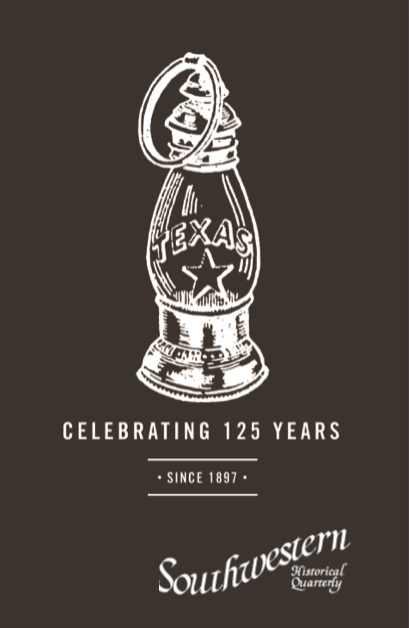 Dr. Omar Valerio-Jiménez, professor, recently published “Borderlands History in the Southwestern Historical Quarterly” in Southwestern Historical Quarterly, vol. 125, no. 4 (2022): 408-426.
Dr. Omar Valerio-Jiménez, professor, recently published “Borderlands History in the Southwestern Historical Quarterly” in Southwestern Historical Quarterly, vol. 125, no. 4 (2022): 408-426.
Abstract: This historiography article traces the rise and development of borderlands history in the Southwestern Historical Quarterly over its first 125 years. It explores the ways that non-academic and academic historians wrote about such traditional borderlands topics as indigenous nations, Spanish conquest and colonization, French exploration and settlement, colonial competition, land grants, cultural conflict, Anglo American arrival, and the Texas Republic. The article also discusses the influence of Herbert Eugene Bolton and his students on the scholarship published in the journal. It concludes by analyzing the influence of recent borderlands themes and paradigms (such as transnationalism, situational identities, and the destabilization of national narratives) on the journal’s articles.
You can learn more at the journal's website. Congratulations to Dr. Valerio-Jiménez!

